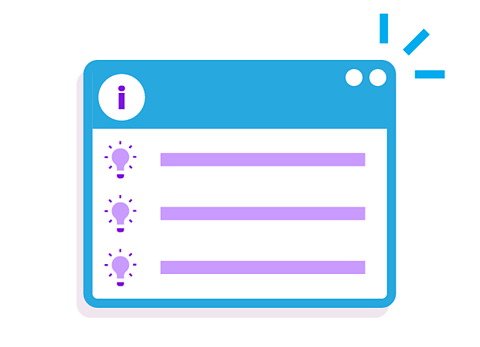Key points about possessive pronouns in Spanish

possessive pronounPronoun indicating possession, for example mine, yours, hers, theirs. are used in place of a noun and a possessive adjectiveShows who something or someone belongs to. The possessive adjective comes before the noun and must agree with the noun that follows..
Possessive pronoun must agree in gender and number with the noun in the phrase they replace.
Possessive pronouns in Spanish
Possessive pronouns are used in place of a noun and a possessive adjective and in English are words such as mine, yours and ours.
Each possessive pronoun must agree in gender (masculine or feminine) and number (singular or plural) with the noun in the phrase they replace.
These pronouns are the same as the long forms of possessive adjectives, but are almost always used with the definite articleGoes before a noun and means the. In Spanish the definite article changes according to whether the noun is masculine, feminine, singular or plural..
| Possessive pronoun | Masculine singular | Feminine singular | Masculine plural | Feminine plural |
|---|---|---|---|---|
| mine | Sorry, something went wrongCheck your connection, refresh the page and try again. | Sorry, something went wrongCheck your connection, refresh the page and try again. | Sorry, something went wrongCheck your connection, refresh the page and try again. | Sorry, something went wrongCheck your connection, refresh the page and try again. |
| yours (informal singular) | Sorry, something went wrongCheck your connection, refresh the page and try again. | Sorry, something went wrongCheck your connection, refresh the page and try again. | Sorry, something went wrongCheck your connection, refresh the page and try again. | Sorry, something went wrongCheck your connection, refresh the page and try again. |
| his/hers/its/yours (formal singular) | Sorry, something went wrongCheck your connection, refresh the page and try again. | Sorry, something went wrongCheck your connection, refresh the page and try again. | Sorry, something went wrongCheck your connection, refresh the page and try again. | Sorry, something went wrongCheck your connection, refresh the page and try again. |
| ours | Sorry, something went wrongCheck your connection, refresh the page and try again. | Sorry, something went wrongCheck your connection, refresh the page and try again. | Sorry, something went wrongCheck your connection, refresh the page and try again. | Sorry, something went wrongCheck your connection, refresh the page and try again. |
| yours (informal plural) | Sorry, something went wrongCheck your connection, refresh the page and try again. | Sorry, something went wrongCheck your connection, refresh the page and try again. | Sorry, something went wrongCheck your connection, refresh the page and try again. | Sorry, something went wrongCheck your connection, refresh the page and try again. |
| theirs/yours (formal plural) | Sorry, something went wrongCheck your connection, refresh the page and try again. | Sorry, something went wrongCheck your connection, refresh the page and try again. | Sorry, something went wrongCheck your connection, refresh the page and try again. | Sorry, something went wrongCheck your connection, refresh the page and try again. |
For example:
ВїEs tu casa? No, la mГa es mГЎs pequeГ±a. - Is it your house? No, mine is smaller.
ВїEs vuestro hotel? No, el nuestro estГЎ allГ. - Is it your (informal plural) hotel? No, ours is there.
ВїEs su colegio? No, el suyo estГЎ en otro barrio. - Is it his school? No, his is in another area.
Quiz - Possessive pronouns
Practise what you've learned about possessive pronouns in Spanish with this quiz.
Now you have learned about possessive pronouns in Spanish why not explore possessive adjectives?
More on Pronouns
Find out more by working through a topic
- count1 of 9

- count2 of 9

- count3 of 9

- count4 of 9
